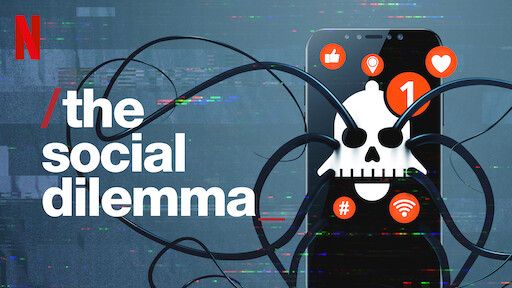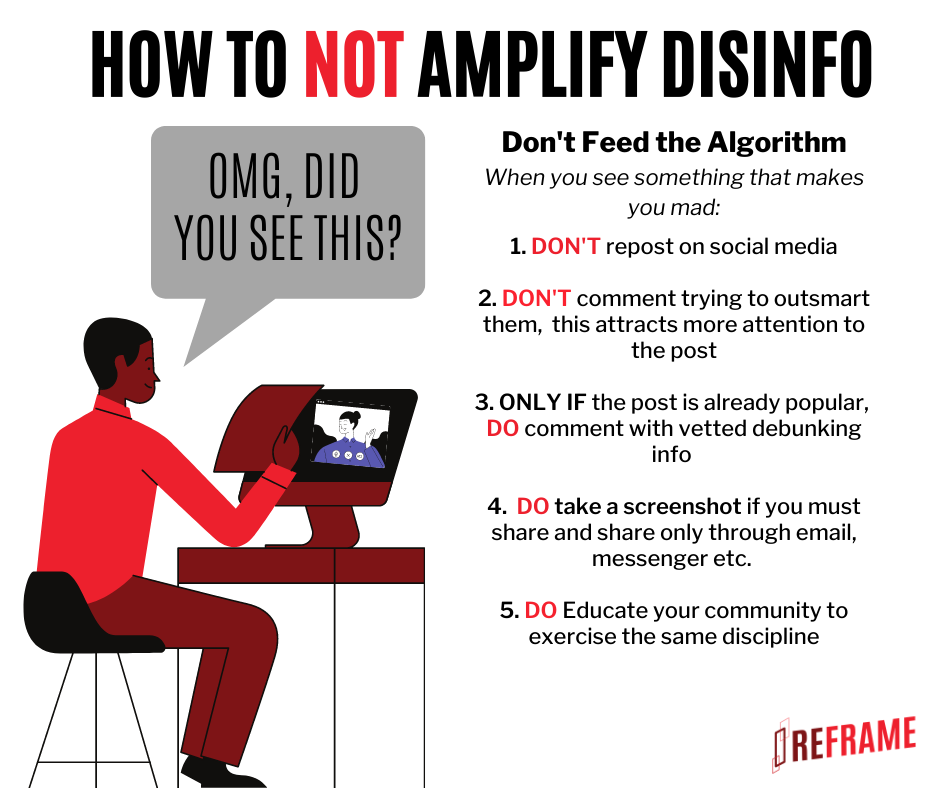
Meaningful Movies Everett watched The Social Dilemma over the weekend, and I was asked to speak briefly afterwards. The movie makes an important point: you are the product that Facebook, Google and other big tech companies manipulate and exploit as part of their "surveillance capitalism" business model. That said, as reviews like Flamethrowers and Fire Extinguishers point out, there's also a lot the movie doesn't discuss. So of course that's what I talked about!
It was a great discussion, and several other good topics came up as well, so I volunteered to do a follow-up post with more information and links.
Things you can do on an individual level
Another good point The Social Dilemma made is that there are things you can do as an individual to reduce the harm these exploitative companies do. It's important to highligh that this by itself isn't enough to change the systemic dynamics; still, it helps protect you, your friends, and your family. There are some good suggestions in the movie, and even more powerful – and fairly straightforward – things you can do. Here's a short list:
- Be intentional about how you're using the software. As somebody said in The Social Dilemma, "you vote with your clicks." Think about what you're liking, resharing, watching, and discussing. Ignore recommended videos (which on YouTube and Facebook often suggest misogynist, racist, anti-LGBTQ, and/or conspiracy videos). Later in this article I'll briefly discuss how similar approaches can also help with disinformation.
- Cut down the addictiveness by turning off notifications, and learning habits that work for you – for example, keep your phone out of your bedroom, carving out surfing-free times, and limiting your time online.
- As parents, help your children learn critical media literacy skills. At the same time, be aware that there's a lot you can learn from them as well!
- Use less-invasive alterantives to surveillance capitalism companies. Signal is great (instead WhatsApp or Messenger) for 1-1 and small group conversation. For search, I'm a fan of Duck Duck Go as an alternative to Google; Restore Privacy has a long list of alternatives to other Google products. Avoid apps when possible – apps frequently have much more invasive tracking and can introduce malware risks. Web interfaces are generally less intrusive, albeit less convenient.
- Use ad-blockers and other privacy-protective techonlogies on your computer. I use Ad Blocker Ultimate and EFF's Privacy Badger; there are other good choices as well.
One of the inherent tensions that came up in several questions is the dilemma that especially during the pandemic we're very often connected to friends and family primarily through social networks that are owned by surveillance capitalism companies. It'd be great if everybody ditched Facebook (etc) for a good free privacy-friendly alternatives but meanwhile back in the reality of early 2021, for many people Facebook, WhatsApp, Gmail, and so on are the best way to keep important friendships, connections, and relationships alive.
The balance is different for different people, and there often aren't any easy answers here. The key is to think about the choices your making, and look for ways to reduce your exposure to harmful stuff.
Washington state privacy legislation
One of the things The Social Dilemma didn't discuss is the potential role of legislative solutions in establishing accountability for the harms of surveillance capitalism (and interfering with its exploitative business models). Washington state is on the front lines of this battle, with a pair of privacy bills in front of the state legislature. The People's Privacy Act (HB 1433) has been developed working with civil rights and community groups, and offers strong protections ... but unfortunately hasn't even gotten a hearing yet.
Meanwhile, SB 5062, also known as the Bad Washington Privacy Act, got sharp criticism from civil rights groups and community members in its hearings, but praise from Microsoft, Google, Amazon, and industry associations so has sailed through committees and is headed towards a Senate floor vote. Even though the Bad Washington Privacy Act's protections love to talk bout how "strong" its protections supposedly are, it's an illusion. Susan Grant of Consumer Federation of America has a great discussion of this in We Need Real Privacy Protection in the States, not the Washington Privacy Act’s Illusion of Privacy, and I also look at in some detail in The illusion of protection and SB 5062 (the Bad Washington Privacy Act) with some very groovy optical illusions if you are into that kind of thing.
So one very valuable thing you can do is tell your legislator that you want stronger protections. Here are three things you can do right now:
- Tell representatives to protect your privacy, from CAIR Washington and ACLU of Washington, sends your legislators mail discussing the problems of SB 5062.
- The People's Privacy Act Letter to the Editor Kit on the ACLU of Washington's site has great sugestions about how to construct a letter to the editor as well as a link to the list of submission links for 90+ news sites and blogs around the state.
- Tell your Senators that you want privacy legislation to protect against Facebook and Google is an action item from Indivisible Plus Washington that focuses specifically on two of the companies discussed in The Social Dilemma.
Disinformation
The movie only mentions disinformation briefly, but it's an important enough topic that I wanted to provide some resources on this front as well. Indivsible Plus Washington did several disinformation workshops last fall with Shireen Mitchell of Stop Online Violence Against Women. The two-minute video above is a quick introduction; there's also a longer training course on Responding to Disinformation and Digital Voter Suppression.
There are a lot of other great disinformation resources out there as well, including PEN America's How to Talk to Friends and Family Who Share Misinformation, Jen Soriano’s Disinformation is like a virus, and ReFrame's infographics.
In terms of pressuring companies like Facebook and Google to do better on disinformation, there are several important active campaigns. Two examples:
- The Real Facebook Advisory Board includes Shireen Mitchell, Safiya Noble (author of Algorithms of Oppression), Ruha Benjamin (Race after Technology and The New Jim Code), Jessica J. González of Free Press, Maria Ressa of Rappler and more as well as Roger McNamee, Tristan Harris, and Shoshanna Zuboff (all of whom prominently in the Social Dilemma)
- Stop Hate for Profit is a diverse and growing coalition that wants social media companies to take common-sense steps to address the rampant racism, disinformation and hate on its platform, and includes ADL, Color of Change, Common Sense, Free Press, LULAC, Mozilla, NAACP, National Hispanic Media Center, and Sleeping Giants.

What didn't get discussed in The Social Dilemma – and a short reading list
Before wrapping up I want to return to the topic of some things besides legislative solutions that didn't get discussed much in The Social Dilemma. For example:
- Recognition of the the people and organizations who have been talking about these abuses for years. The people the movie actually focused on spent their careers (and made a lot of money) not listening to warnings about what they were doing ... now that they're finally waking up, they're still saying "how could we have known?" and ignoring the folks who were right all along.
- Facebook’s track record of civil rights violations in the US -- or really anything about race and gender. How many Black, Latinx, or Indigenous people did you see in the movie? How much discussion of Facebook and Google's history of sexism, racism, and misogynoir was there?
- Tech companies well-documented history of lies and lawbreaking. Washington state offers a great case study of this: Facebook and Google have been breaking Washington state law on election advertising since 2018. The AG sued, they settled and promised to stop ... and they've kept doing it.
- Facebook's role in genocides, anti-Muslim riots and authoritarian governments taking power in countries like Brazil, the Phillipines, and India.
- Anything about solutions.
So while there were certainly some valid points in The Social Dilemma, it also reflects a lot of the problems of the underlying tech culture. It's good that some of the people got rich by creating these problems are starting to feel bad about it, and they have some useful things to say.
Still, instead of looking to them for a real critique of the systems (that made them rich) – or for solutions (that might reduce their influence) – it's far better to turn to people with a deeper understanding. Here's a short reading list to find out more:
- Flamethrowers and Fire Extinguishers, on Librarian Shipwreck is an extended review of The Social Dilemma, going into more detail on the omissions I briefly discussed here.
- The Prodigal Techbro, by Maria Farrell, looks at tech executives who "experience a sort of religious awakening" and become critics. As Ms. Farrell says, "The prodigal tech bro doesn’t want structural change. He is reassurance, not revolution. He’s invested in the status quo, if we can only restore the founders’ purity of intent. Sure, we got some things wrong, he says, but that’s because we were over-optimistic / moved too fast / have a growth mindset."
- Antisocial Media: How Facebook Disconnects Us and Undermines Democracy, by Siva Vaidhyanathan, is an excellent book-length exploration of Facebook's problems by somebody who's studied the tech and media industries for years.
- Race After Technology, by Ruha Benjamin, looks at how technology reinforces and magnifies racial hierarchies in our society.